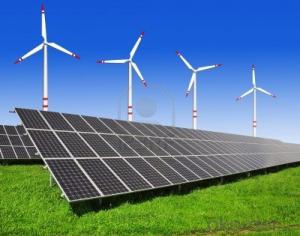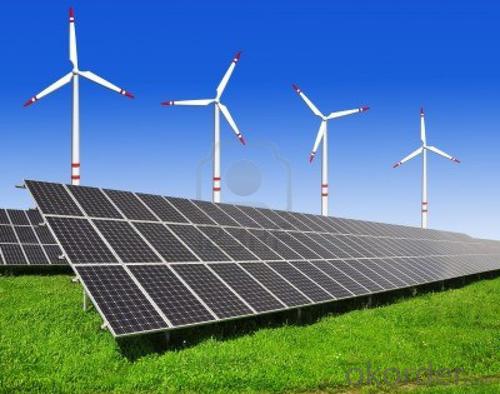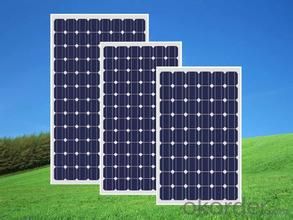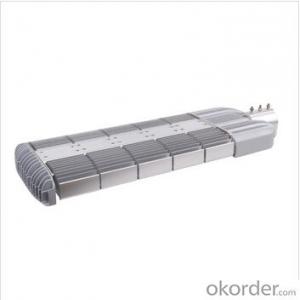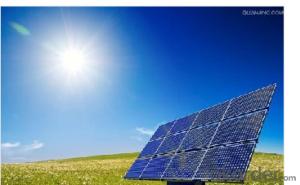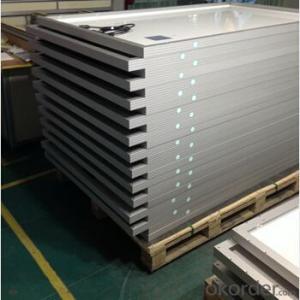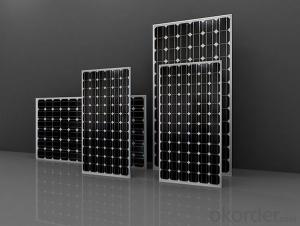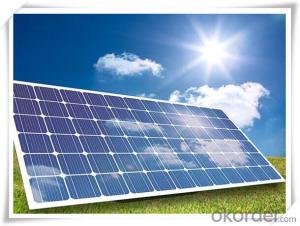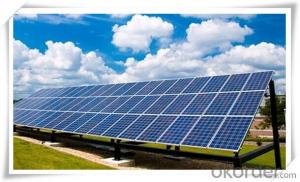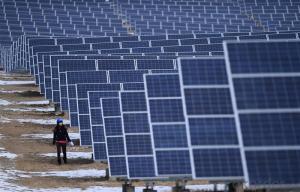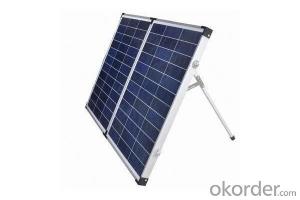165 Watt Solar Panels - 265W Mono Solar Panel with Solar Cells, TUV, IEC, CE, UL Certificate for Solar System
- Loading Port:
- Shanghai
- Payment Terms:
- TT OR LC
- Min Order Qty:
- 300 watt
- Supply Capability:
- 1000 watt/month
OKorder Service Pledge
OKorder Financial Service
You Might Also Like
product description
More recently, intrinsic and doped polysilicon is being used in large-area electronics as the active and/or doped layers inthin-film transistors. Although it can be deposited by LPCVD, plasma-enhanced chemical vapour deposition (PECVD), or solid-phase crystallization of amorphous silicon in certain processing regimes, these processes still require relatively high temperatures of at least 300 °C. These temperatures make deposition of polysilicon possible for glass substrates but not forplastic substrates.Base stations - for mobil and internet provider
Polycrystalline silicon, also called polysilicon or poly-Si, is a high purity, polycrystalline form ofsilicon, used as a raw material by the solar photovoltaic and electronics industry.
- United Nations and other Humanitarian Aid & Relief Agencies
Mining Contractors (exploration/drilling)
Emergency Services (Natural Disaster Organisations)
Road, Bridge, Pipeline Construction Organisations
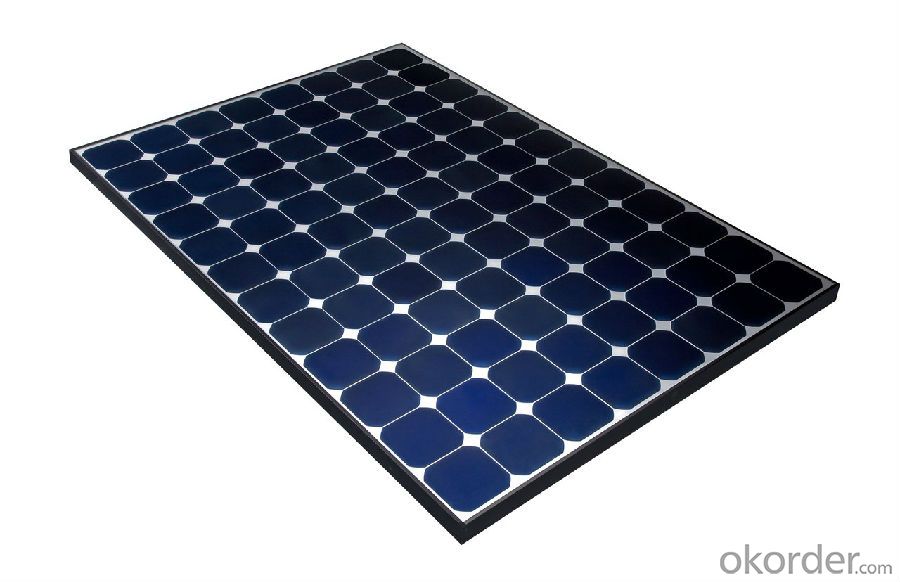
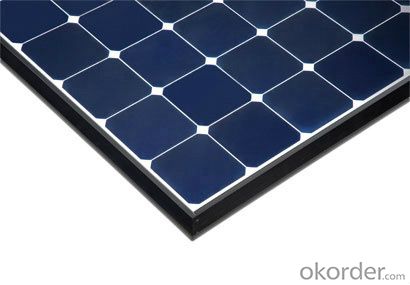
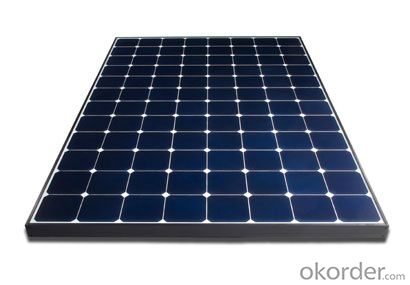
product characteristic
The E-series photovoltaic module comes with a 90% (12-year) and 80% (25-year) of rated minimum peak power warranty and a 10-year warranty on workmanship and materials
Positive power tolerance 0 to +5W
Internal by-pass diodes across 20 series cells resists effects of shading
Passed 3rd party testing: Salt spray and Ammonia resistance
Conforms to UL 1703, ULC-ORD-C1703-01 and CE
detail parameter
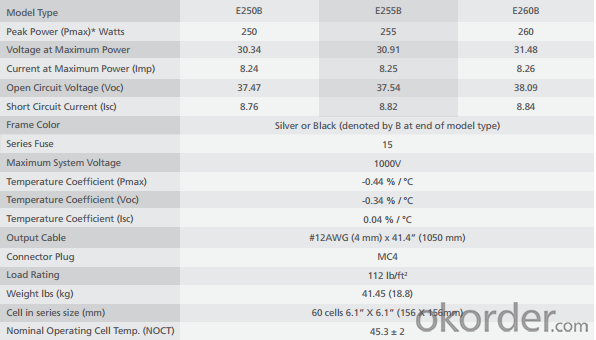
technological process
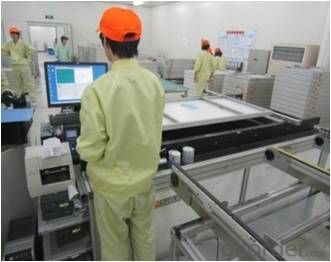
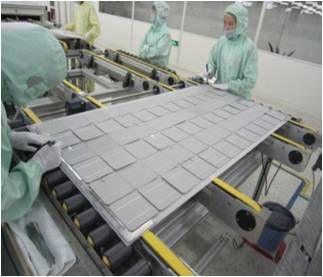
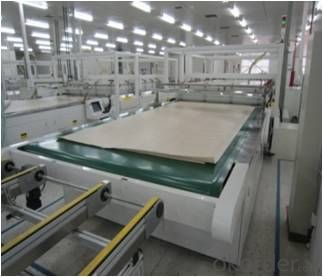
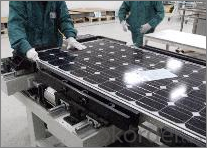
package&delivery
we pack goods with pallets and carton box
each one will be carefully examined by our staff.
- Q: Can solar panels be used for powering a manufacturing facility?
- Yes, solar panels can be used to power a manufacturing facility. Solar energy can be converted into electricity, which can then be used to power various processes and equipment in a manufacturing facility. This can help reduce reliance on traditional energy sources and promote sustainability. However, the feasibility and capacity of solar power for a manufacturing facility would depend on factors such as the facility's energy requirements, available space for solar panel installation, and local sunlight conditions.
- Q: Can solar panels be used in areas with high snowfall?
- Yes, solar panels can be used in areas with high snowfall. However, it is important to consider the design and installation of the solar panels to ensure their efficiency and performance in snowy conditions. Snow can reduce the amount of sunlight reaching the panels, which may affect their power generation. Additionally, the panels should be angled properly to allow snow to slide off easily. Regular maintenance, such as clearing snow accumulation, may also be required in snowy regions to optimize the performance of solar panels.
- Q: How many kilowatts? Would it be enough to power my electric heat?Does one panel cost about $2000.?
- I doubt it'd supply your heat. Anything involving electric heating uses tons of energy. Also, keep in mind that you don't just need a panel but also a DC to AC converter.
- Q: Can solar panels be installed on ground-mounted structures?
- Yes, solar panels can be installed on ground-mounted structures. Ground-mounted solar panel systems are commonly used when there is limited space on rooftops or when the optimal orientation and tilt angles cannot be achieved on a building's roof. Ground-mounted structures provide flexibility in panel placement, allowing for optimal sun exposure and ease of maintenance.
- Q: Can solar panels be installed on airports?
- Yes, solar panels can be installed on airports. In fact, many airports around the world have already embraced solar energy to meet their power needs and reduce their carbon footprint. These panels are typically installed on rooftops, parking structures, or vacant land within the airport premises. The use of solar panels in airports not only helps generate clean and renewable energy but also contributes to cost savings and long-term sustainability.
- Q: If you want to instal solar panels...how often do you have to replace them?
- solar cells never really stop producing, they just reduce their output over the years. There are many solar panels still running at 75% of their initial output and have been up for over 40 years. Most manufacturer will give you a 25 or 30 year waranty. That means that they guarantee that the solar panels will have no less than a 0% drop in the amount of electricity produced by each panel in 30 years.
- Q: Can u guys help on how solar panels work and how it generates electricity?(or u can give me a good website that has solar panel info on it)~Thanks in advance!~
- Solar okorder under products that are sorted by watts per area. Also go to wikipedia to get more detailed information on solar cells.
- Q: How are solar panels installed?
- Solar panels are typically installed on rooftops or open spaces using metal frames or mounting brackets. The process involves anchoring the panels securely, connecting them in a series or parallel configuration, and wiring them to an inverter that converts the DC electricity generated by the panels into usable AC electricity. Additionally, a solar panel installation may require making electrical connections to the building's electrical system and installing a net meter to measure the energy produced and consumed.
- Q: My family moved into a house that came with solar power panels but they are not connected and don't really understand how to even begin.
- You need to know some electrical basics. You need to check if they are still working and determine the output voltage with the use of testers. They are just part of a system that includes other equipments as well like a controller, car batteries, inverters, diodes.
- Q: Can solar panels be damaged by hail or strong winds?
- Yes, solar panels can be damaged by hail or strong winds. Hailstones can cause cracks or dents on the surface of solar panels, affecting their efficiency. Likewise, strong winds can potentially dislodge or break the panels, leading to their damage or complete destruction. It is important to ensure proper installation and consider protective measures, such as using impact-resistant glass or adding extra support structures, to minimize the risk of damage from hail or strong winds.
Send your message to us
165 Watt Solar Panels - 265W Mono Solar Panel with Solar Cells, TUV, IEC, CE, UL Certificate for Solar System
- Loading Port:
- Shanghai
- Payment Terms:
- TT OR LC
- Min Order Qty:
- 300 watt
- Supply Capability:
- 1000 watt/month
OKorder Service Pledge
OKorder Financial Service
Similar products
Hot products
Hot Searches
Related keywords
